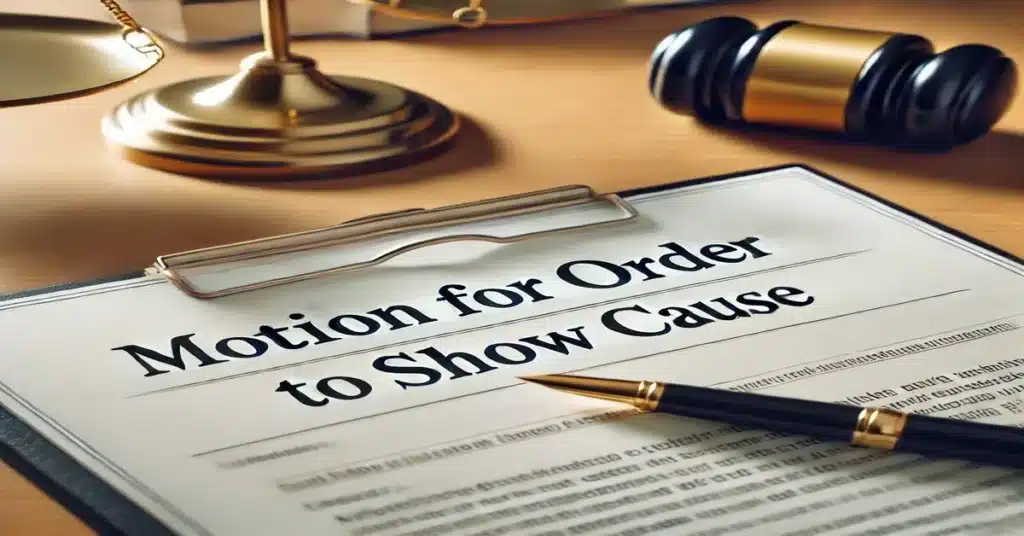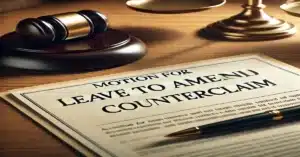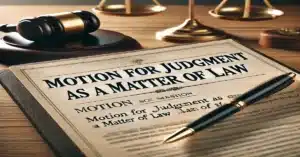When a party disregards a court order, it can disrupt legal proceedings and harm your rights. A Motion for Order to Show Cause is a legal request asking the court to require the non-compliant party to appear and explain why they have not followed the order—and why they should not be held in contempt.
At Courtroom5, we offer an AI-powered Motion for Order to Show Cause drafting tool designed to help self-represented litigants create clear and effective motions. This tool is available exclusively with a Courtroom5 membership.
➡ Start your Motion for Order to Show Cause journey here.
What Is a Motion for Order to Show Cause?
A Motion for Order to Show Cause is filed when a party fails to comply with a court order. Common reasons for filing include:
- Failure to Pay Court-Ordered Child or Spousal Support
- Violation of a Custody or Visitation Order
- Non-Compliance with an Injunction or Restraining Order
- Refusal to Follow a Settlement Agreement or Judgment
By filing this motion, you request that the court compel the other party to justify their non-compliance or face penalties, such as fines or contempt charges.
Challenges in Filing a Motion for Order to Show Cause
Self-represented litigants often struggle with:
- Clearly Identifying the Violation – You must explain how the other party has breached a court order.
- Gathering Supporting Evidence – Providing proof that the party has failed to comply.
- Following Procedural Rules – Courts have strict requirements for formatting and filing deadlines.
A well-prepared motion increases the likelihood of court enforcement and compliance.
How Courtroom5’s AI-Powered Tool Can Assist
Our Motion for Order to Show Cause drafting tool simplifies the process by guiding you through:
- Assessing the Violation – Ensuring your motion meets legal standards.
- Drafting a Properly Structured Motion – Clearly explaining the non-compliance and requesting court action.
- Meeting Court Requirements – Ensuring compliance with court formatting and procedural rules.
This tool is part of a Courtroom5 membership, which provides access to automated legal document drafting, step-by-step litigation guidance, and other essential resources for self-represented litigants.
➡ Start your Motion for Order to Show Cause journey now and take action to enforce your legal rights.



